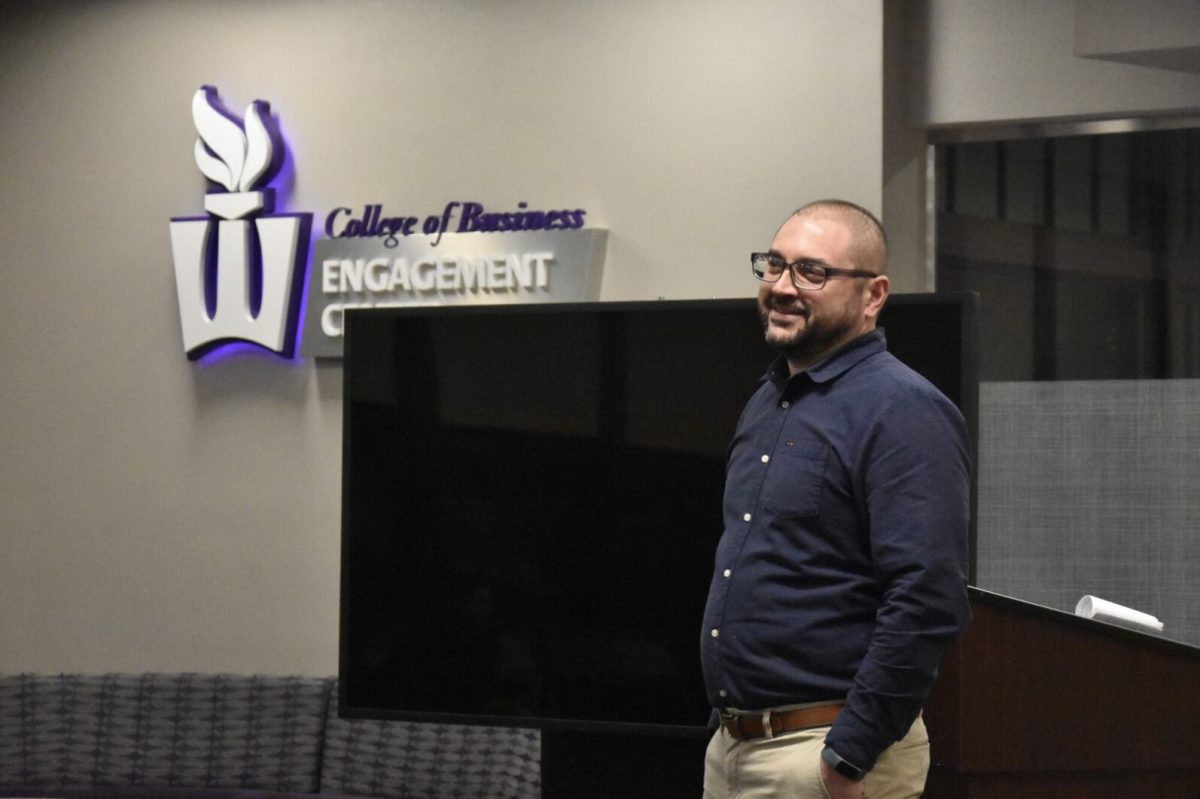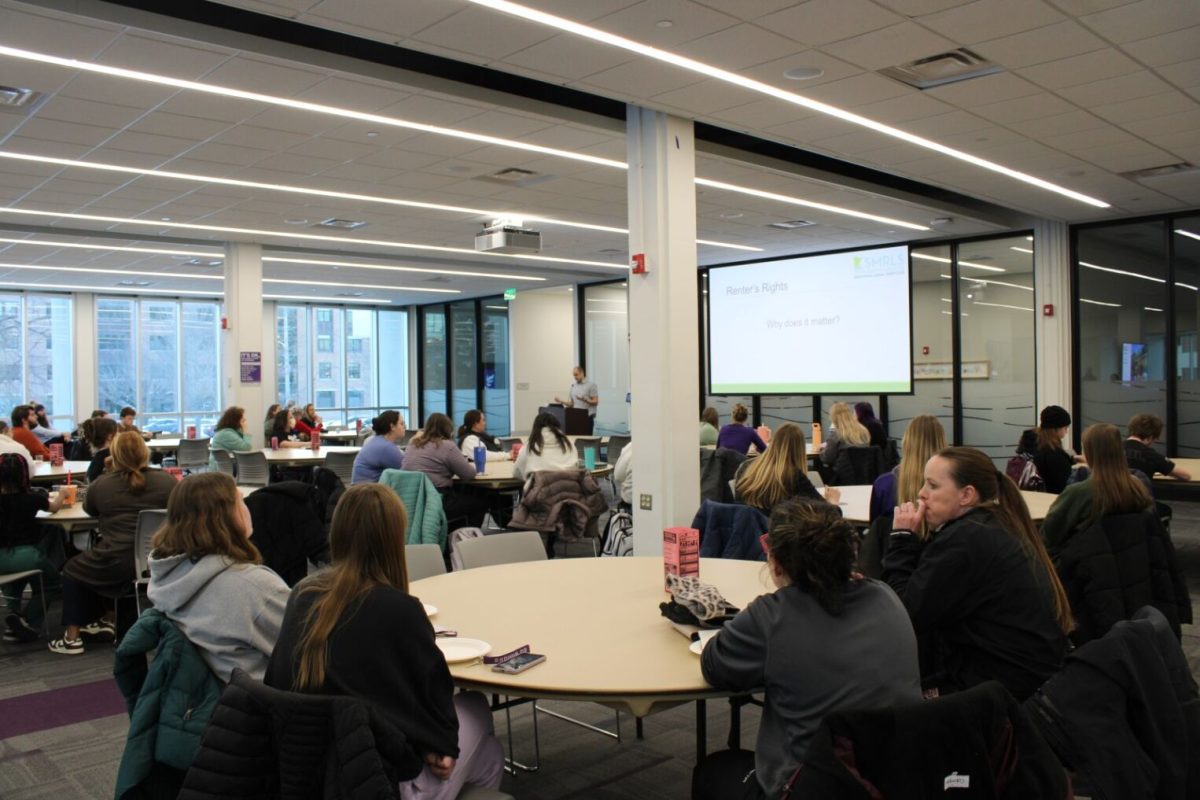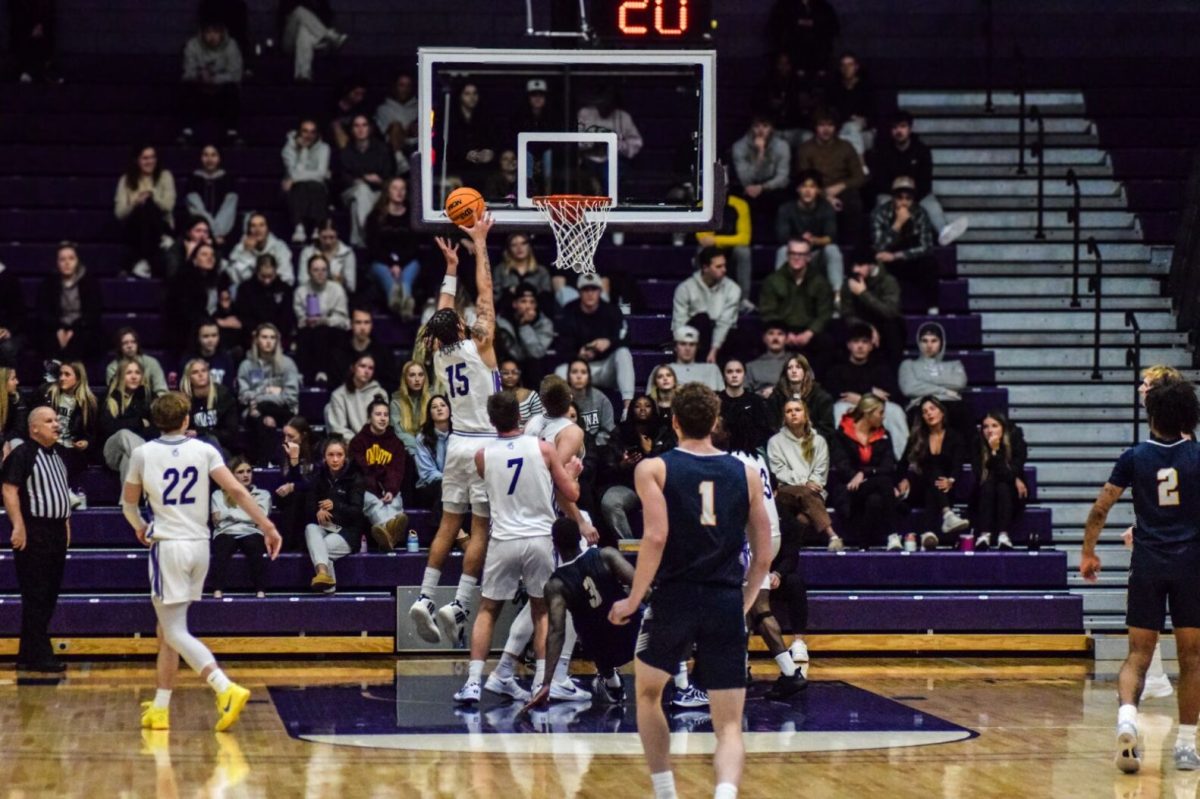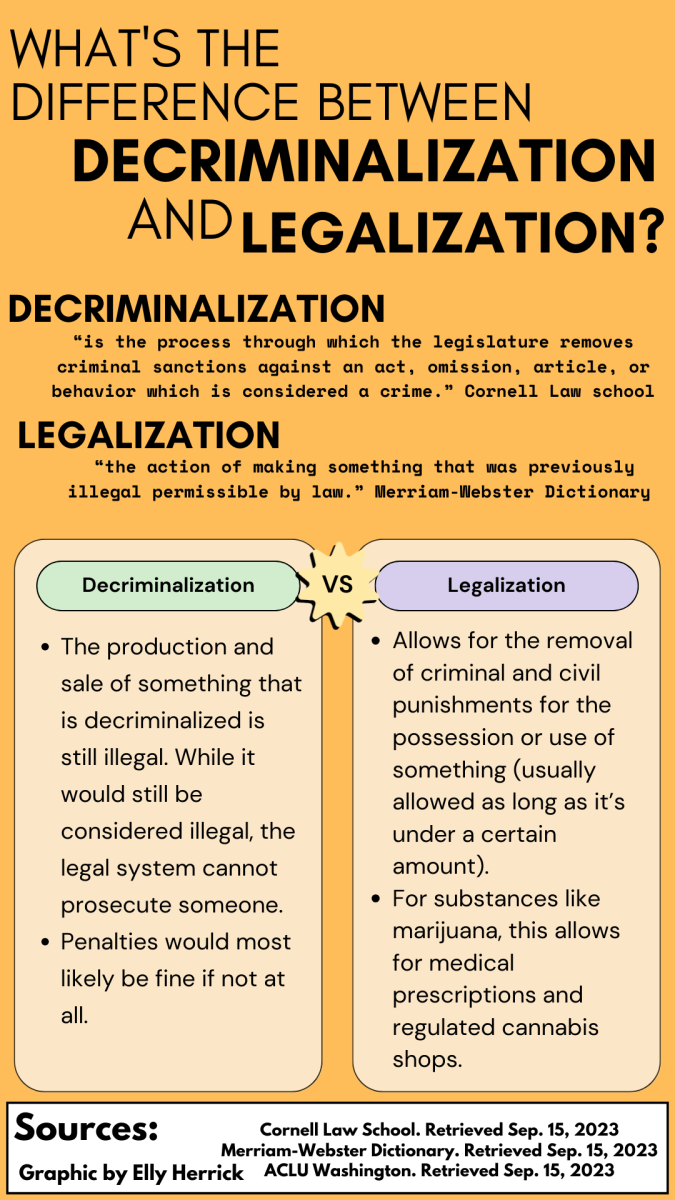Minnesota has legalized the use and possession of recreational cannabis as of Aug. 1, but it was decriminalized in 1976. How does decriminalization differ from legalization? What does this mean for our community, what does it do and who does it affect?
A lot of people confuse decriminalization with legalization, these two words are not synonymous. Per the Legal Information Institute, decriminalization is the process through which the legislature removes criminal sanctions against an act, omission, article or behavior which is considered a crime. Legalization is the action of making something that was previously illegal permissible by law.
“To me, decriminalization means recognizing that people are more than just their mistakes. It’s showing that we can be supportive of each other in this society and it gives people an opportunity to rebuild their lives with support and not jail time,” Blake Como, a second-year criminal justice major, said.
In recent years, decriminalization is a term that has gained significant attention, notably in terms of drug policy reform. The crime and justice system has been moving from punitive measures to a more benevolent and merciful approach.
Per the Prison Policy Initiative, the federal, state, local and tribal systems hold almost 2 million people in 1,566 state prisons, 98 federal prisons, 3,116 local jails, 1,323 juvenile correctional facilities, 181 immigration detention facilities and 80 Indian country jails, as well as in military prisons, civil commitment centers, state psychiatric hospitals and prisons in the U.S. territories.
“I believe the best thing to come from decriminalization has to be how much it improves our country’s mass incarceration problem,” Como said.
So what does decriminalization do? Decriminalization usually involves treating drug use and possession as a public health issue rather than a criminal issue. It shifts the focus to public health rather than punishment. This also helps reduce mass incarceration, encourages harm reduction and also helps save resources.
Decriminalization can lead to cost savings for the government by redirecting resources away from incarceration toward public health and treatment. These resources can be used for education, prevention and rehabilitation programs.
Who does decriminalization affect? Decriminalization can have a profound impact on individuals struggling with substance use. It gives these people opportunities and they are more likely to seek help and treatment when they need it as opposed to simply “locking them up.” Additionally, drug laws have also disproportionately affected communities of color, which can lead to racial deviance in arrests and convictions. Decriminalization helps reduce law enforcement targeting these communities.
“I think that our country improves when decriminalizing things like drug use. It’s not about letting things slide; it’s about giving people the chance to heal and rebuild their lives, which in turn helps our nation,” Como said. “Instead of pouring money into the endless cycle of arrests and incarceration, we can invest in making our society better.”
Decriminalization is a step towards the recognition that the “war on drugs” has failed in many ways and a step away from our country’s punitive drug policies. While it still has its controversies and challenges, it offers a more humane approach to dealing with drug-related issues in our society. To learn more about the legalization of recreational cannabis, look back at one of last week’s articles by Elly Herrick: To Smoke or Not to Smoke: Marijuana Legalization in the State of Minnesota.









































